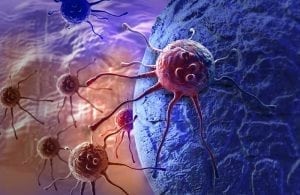When a couple’s wish to have children isn’t coming true, male infertility is responsible one third of the time. There are several well-known causes of male infertility. But did you know that there is also a link between male infertility and cancer? Recent U.S. studies show that the correlation between male infertility and the risk of developing testicular cancer is especially strong.
Testicular cancer and its causes
Testicular cancer is the most common cancer among young men in industrialized countries. In men between 25 and 45 years of age, this form of cancer is one of the most common forms resulting in malignant tumors. The gametes responsible for the production of male sperm are particularly affected by testicular cancer. In nearly all cases, malignant tumors in the testes develop from these gametes (germ cell tumors). According to researchers, the foundation for subsequent testicular cancer is already laid during embryonic development because the unborn baby can produce progenitor cells (defective germ cells), which may become cancerous later in life. Hereditary factors and so-called undescended testicles (a condition in which the testes do not descend into the scrotum) are additional risk factors.
US study finds correlation between cancer and male infertility

More research is needed
Scientists aren’t quite clear yet about the way male infertility and increased cancer risk are related. According to Eisenberg, however, genetic predisposition and various lifestyle factors may also be responsible for the emergence of cancer to a certain degree. Underlying chronic diseases that haven’t been detected yet may also play a role. Because additional research is still needed to determine the exact relationships, Eisenberg recommends that men who are experiencing fertility problems regularly receive a thorough health checkup.




